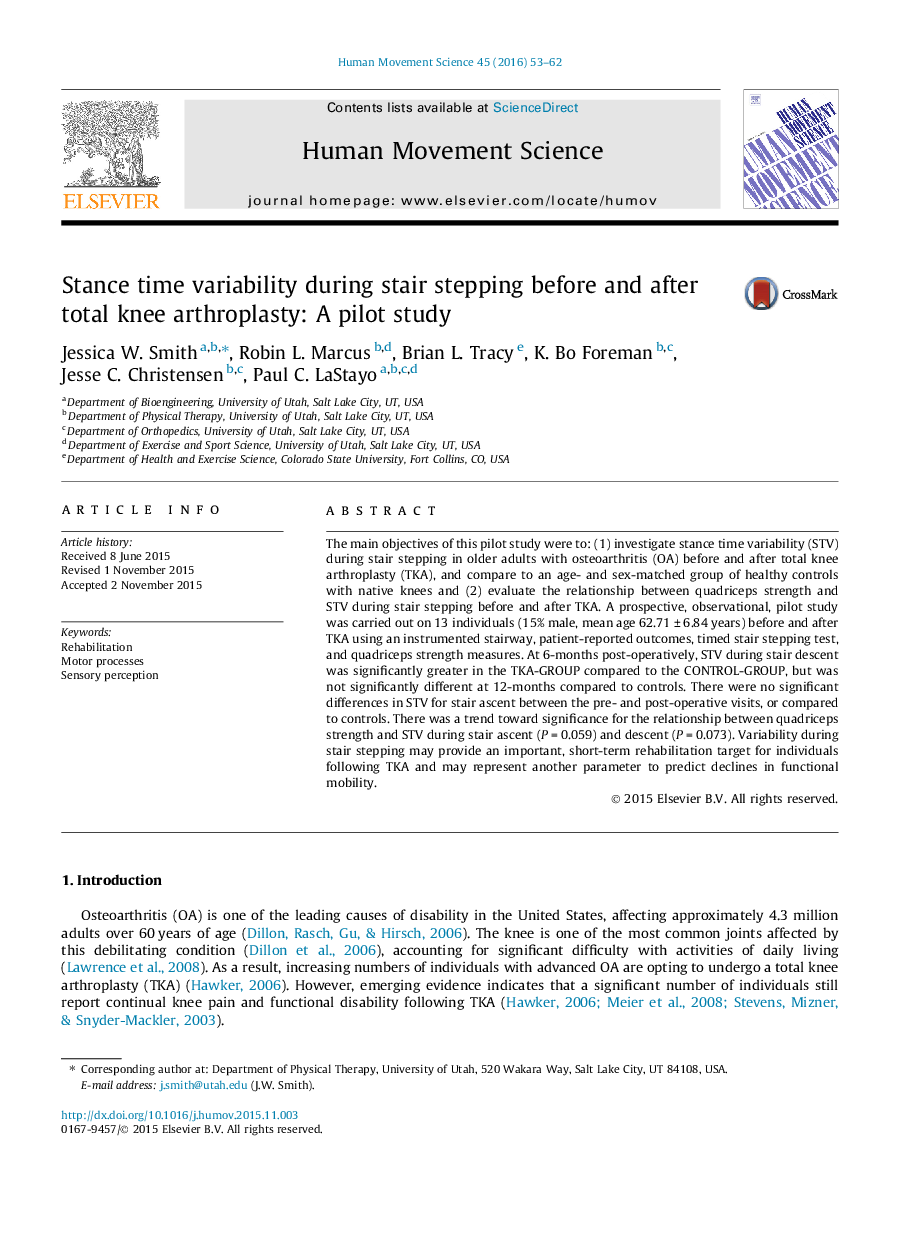| Article ID | Journal | Published Year | Pages | File Type |
|---|---|---|---|---|
| 7291599 | Human Movement Science | 2016 | 10 Pages |
Abstract
The main objectives of this pilot study were to: (1) investigate stance time variability (STV) during stair stepping in older adults with osteoarthritis (OA) before and after total knee arthroplasty (TKA), and compare to an age- and sex-matched group of healthy controls with native knees and (2) evaluate the relationship between quadriceps strength and STV during stair stepping before and after TKA. A prospective, observational, pilot study was carried out on 13 individuals (15% male, mean age 62.71 ± 6.84 years) before and after TKA using an instrumented stairway, patient-reported outcomes, timed stair stepping test, and quadriceps strength measures. At 6-months post-operatively, STV during stair descent was significantly greater in the TKA-GROUP compared to the CONTROL-GROUP, but was not significantly different at 12-months compared to controls. There were no significant differences in STV for stair ascent between the pre- and post-operative visits, or compared to controls. There was a trend toward significance for the relationship between quadriceps strength and STV during stair ascent (P = 0.059) and descent (P = 0.073). Variability during stair stepping may provide an important, short-term rehabilitation target for individuals following TKA and may represent another parameter to predict declines in functional mobility.
Related Topics
Life Sciences
Neuroscience
Cognitive Neuroscience
Authors
Jessica W. Smith, Robin L. Marcus, Brian L. Tracy, K. Bo Foreman, Jesse C. Christensen, Paul C. LaStayo,
